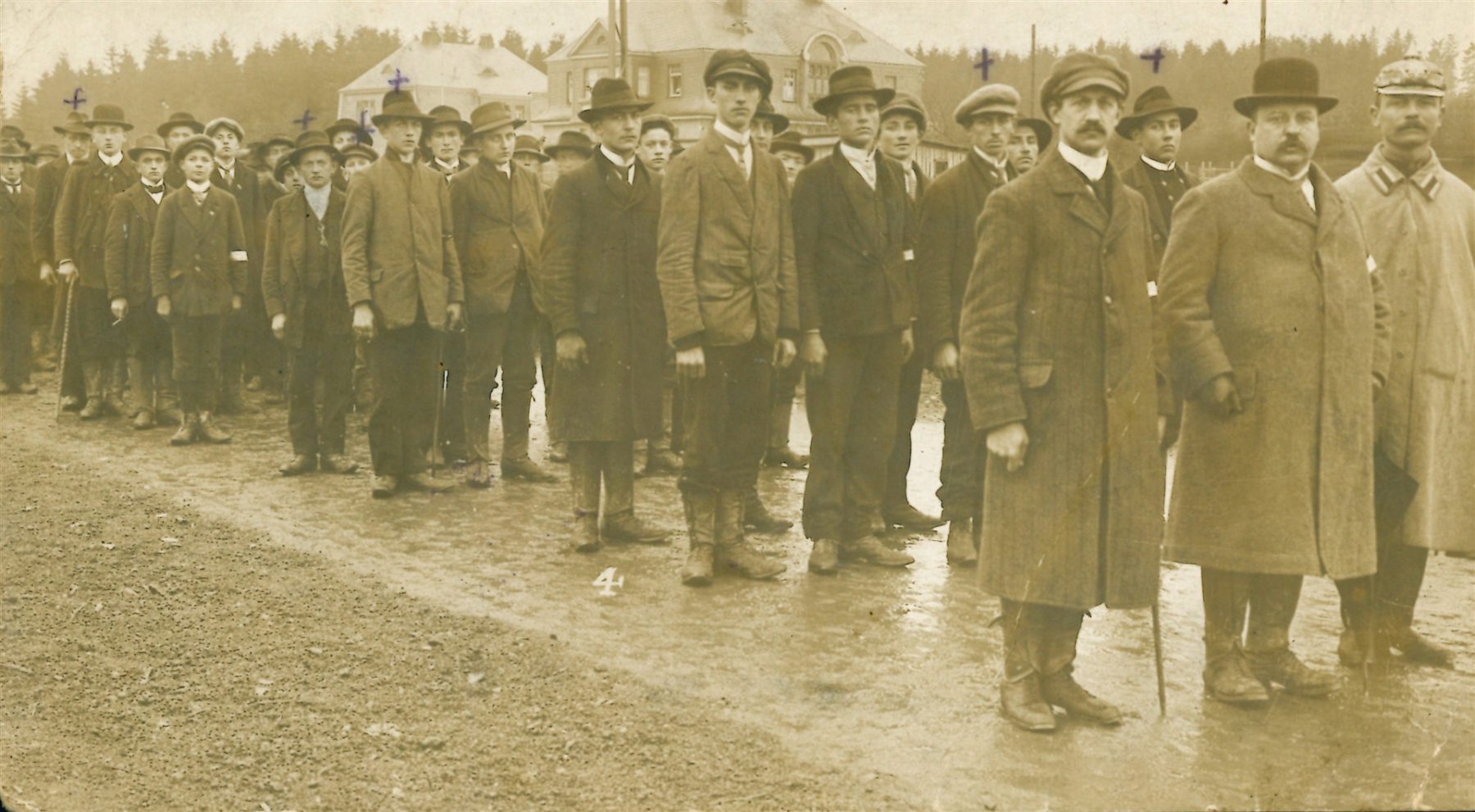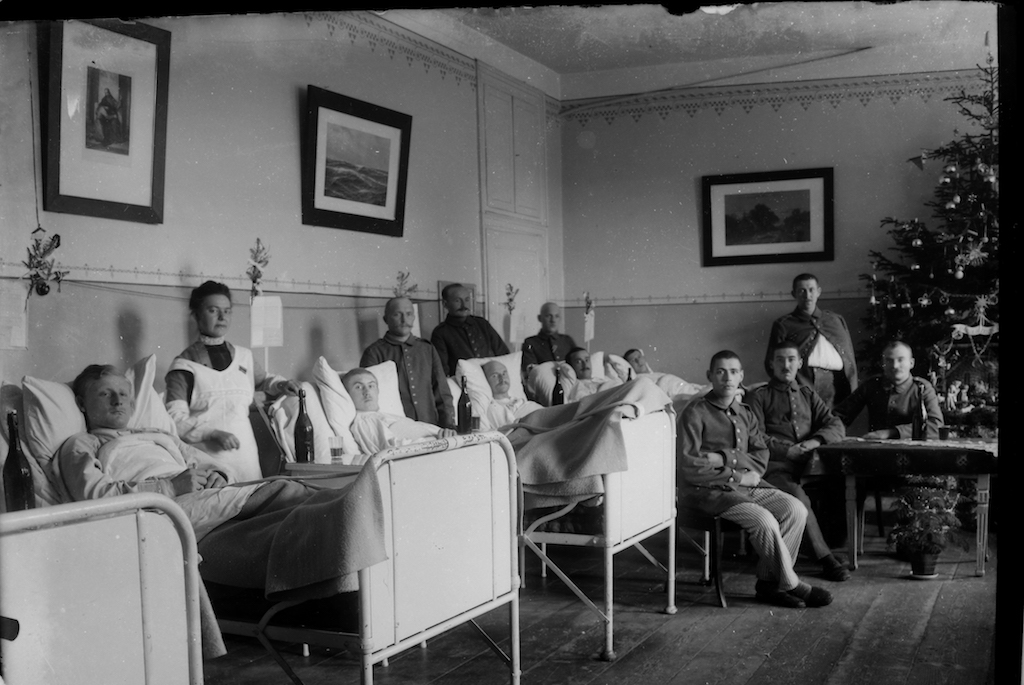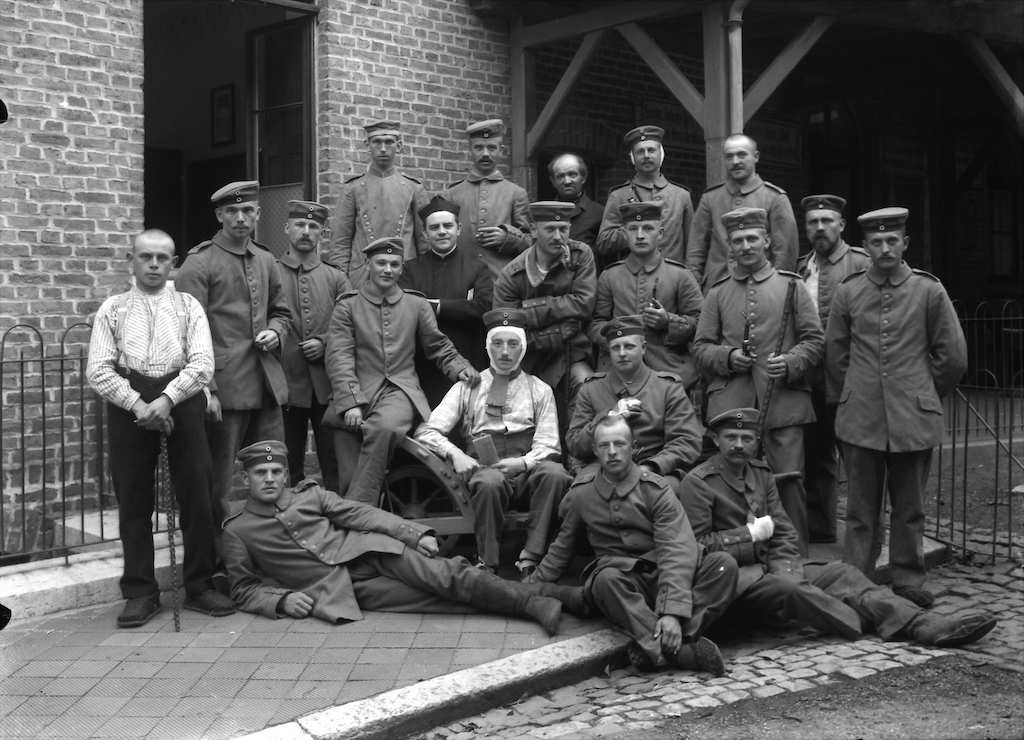The First World War is considered to have been the ‘great seminal catastrophe’ (George F Kennan) of the 20th century. It changed the world dramatically. The analysis of war propaganda alone shows how people can be manipulated, how media can be politically instrumentalised and how images of the enemy can be built up and spread.
A look at today’s eastern Belgium as a border region shows that the memory of this event can be perceived very differently. The First World War has gone down in history in Belgium, France, and England as the ‘Great War’. During the invasion of neutral Belgium in 1914, German troops committed war crimes in many places (such as shooting around 6,000 civilians). They burned villages and towns, deported thousands of Belgian forced labourers, and forced the costs of occupation on Belgian communities. They starved the population. In addition, parts of Belgium remained the theatre of war for four years and were largely destroyed. These experiences are deeply imprinted into the communicative memory of Belgians.
Today’s eastern Belgians have a completely different memory. For almost a hundred years, they had belonged to the Kingdom of Prussia, then the German Empire, when this conflict broke out. The people felt themselves to be German citizens in 1914. Even the majority of Walloons in and around the town of Malmedy described themselves patriotically as ‘Prussian Walloons’.
The military camp of Elsenborn and the entire German-Belgian border area were deployment areas for the German army in August 1914, with soldiers from the districts of Eupen and Malmedy among its ranks. Before 1914, several railway lines had been built to the west for strategic reasons. They were now used to transport tens of thousands of soldiers and as a supply line. Everyone felt the war: through the passage of troops, the quartering and the establishment of military hospitals in the region. Even the artillery fire on the defences outside Liège could be heard by many inhabitants of the border counties at the beginning of the war.
Propaganda accompanied this war from the beginning: the German Emperor and politicians invoked national in the local press, which glorified German military actions, while ridiculing and demonising the enemy. Witnesses of alleged Belgian atrocities were asked to report to the mayor’s offices of the Malmedy district and record their ‘observations’.
Since 1914, Germans had been asked to take out life insurance against war casualties or subscribe to war bonds. The ‘Vaterländische Frauenverein’ (patriotic women’s association) collected ‘gifts of love’ for the soldiers, which were sent by rail and accompanied by reports of results in the press. ‘It is the duty of every German subject to deliver the gold in his possession to the public treasury, post office or savings bank, so that they can hand it over to the Reichsbank,’ another appeal read.
The war became even more palpable through the conscription of young men into the German army. In addition, there were also calls for volunteers in the press and in public spaces, as well as notices that casualty lists were available for inspection at the authorities or that those called up were exempt from tax. The emperor announced that deserters and emigrants would be granted a pardon if they enlisted in the army. Ever longer lists of soldiers killed and the increasing number of obituaries of fallen soldiers gave the war many faces in the local press. In total, the First World War cost the lives of 17 million people. From the district of Eupen, 766 soldiers, and from the district of Malmedy, 1,082 soldiers were killed – a total of 1,848 fallen soldiers.
In 1916, the Hindenburg Programme was adopted, gearing the German economy entirely towards war. Moreover, because the harvests of 1916 and 1917 were exceptionally poor, every citizen now felt the war – even in the countryside: the supply of the population was massively restricted, everyone now had to contribute to the war. Even children were repeatedly deployed in class to harvest potatoes or turnips, or to collect beechnuts, mushrooms, berries, etc. The front came ever closer to the home front.
The front became ever more closely interwoven with the homeland: soldiers fought on the battle lines, and those at home worked and sacrificed in order to keep the supplies running to the front-line soldiers. Everything took a backseat to the success of the fighting troops. The army postal service became the practical and most important link.
There were no insights into the fate of the Belgian, Luxembourgian, or Dutch neighbours, into their suffering and hopes. This continued beyond the war: everyone focused exclusively on the suffering they had experienced themselves.
The memory of the First World War in East Belgium has changed fundamentally in recent decades. 11 November presumably contributes to this. As Armistice Day, it has been a public holiday in Belgium, France and Luxembourg since 1922, but not in Germany. On this day, the victims of the First World War are commemorated. This happens from a particular angle in East Belgium. In Eupen, for example, a band first plays the German lament ‘Der gute Kamerad’ (The good comrade), followed by the bugle call ‘The Last Post’, and finally the Belgian national anthem. In the Rhineland, however, this day is celebrated as the official start of the carnival season. Many East Belgians also celebrate this kick-off in Cologne or in East Belgium. This obscures the basic idea of the official holiday. In other words, the ancestors of most East Belgians were among the losers of this war, but some of their descendants celebrate the start of carnival all the more exuberantly today as Belgians on this day of remembrance.
There are thousands and thousands of pictures from the First World War. But where are the pictures of the former enemies, the French, English, Russians, or Belgians in private photo albums? The media and groups can easily be instrumentalised to achieve a supposedly more important goal. One imagines people of one’s own cohort being drafted for war service. Would people today go to war as naively as the young men, women and families did in 1914? Or would they be more enlightened? How do you spot propaganda today, and how do you protect yourself from it?




